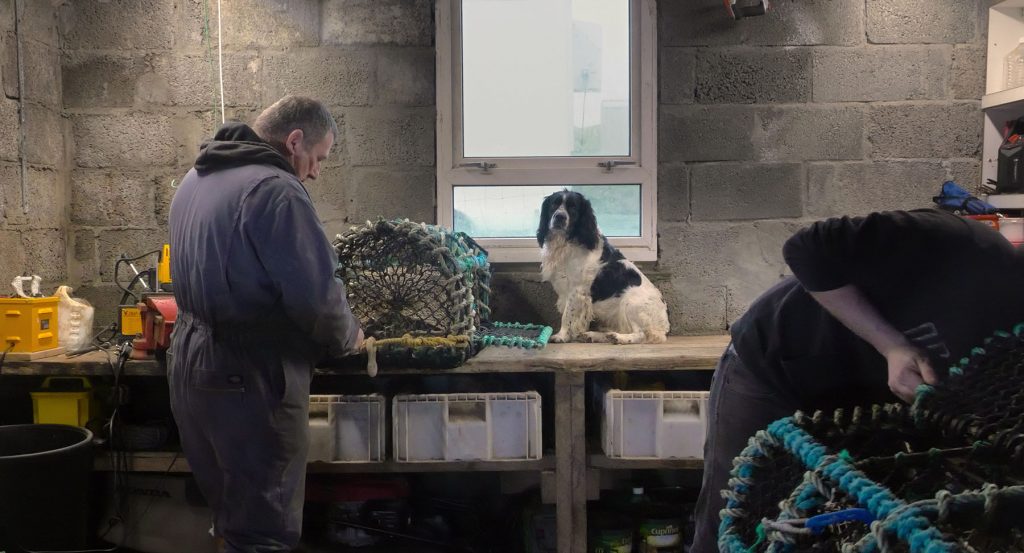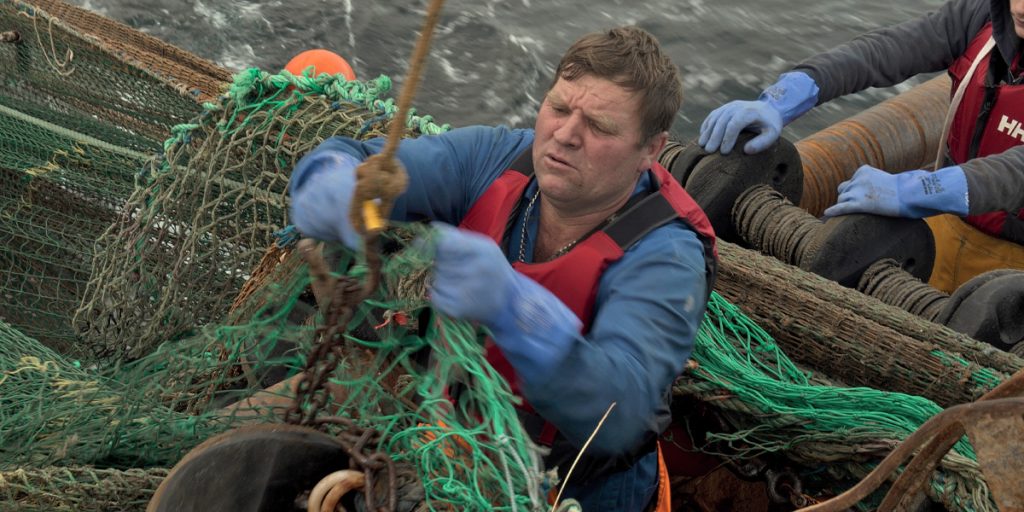Iorram (Boat Song) is a creative documentary of the Gaelic-speaking fishing community in Scotland’s Hebrides, a lyrical portrait of their intimate relationship with the sea.
When it comes to using the medium of film to portray realities that have disappeared under the weight of modernity and progress, few would think of the life of the fishermen and fisherwomen who live across the northern Scottish coast. Working tirelessly to catch herrings, crabs and lobsters sold across the UK and even the world, these men and women dedicate their lives to hard work with no prospects of a break or holiday. Iorram (Boat Song) is here to tell us their stories and lives. Through the use of archive interviews conducted between the 1950s and the 1975s, the creative documentary draws an intimate portrait of the Scottish people who lived on the seas and dedicated their life to fishing. The stories we hear throughout the film are told in Scottish Gaelic, juxtaposed with images of modern-day fishing, crabbing and fish preparation.
The technique of using archive interviews with present-day footage is something seen before. However, in Iorram this contrast helps create an atmospheric documentary in which the viewer is lulled from one tale to another. Indeed, it feels so easy to just sit down, enjoy the incredible Scottish scenery on display and listen to the tales of times long gone. The documentary only gets more pleasing, as a lush soundtrack by Aidan O’Rourke accompanies almost every running minute of storytelling. Iorram is special in that regard, it manages to be both a well-crafted documentary and a candid portrait of the Scottish people of the Outer Hebrides. Perhaps, this is also Iorram’s weak spot.
Although the stories feel captivating, by halfway through the film some patterns begin to emerge and the tales told in the archive footage fall into three categories: stories about the fish, stories about sailor’s life at sea, and stories about the women working at shore. In that regard, the latter part of Iorram becomes a bit tedious while still being respectful towards its narrators. That said, one cannot but help feel sympathy for director Alastair Cole (Colours of the Alphabet, Do You Really Love Me?): there were so many good stories and so much material to work with, that it’s only fair we get to hear as many as possible. After all, when will be the next time you take a moment to listen to sailors and seawomen, softly talking to you in Gaelic and telling you about their life, like grandparents telling stories to their grandchildren?

A note has to be made of some of the film’s visual choices. There were times when I was a bit confused as to why I was seeing footage of lobsters being caught and crabs been cleaned, when the voiceover spoke exclusively of herrings. This is not to say that shellfish do not play a role at all in the stories – they do. It’s just their timing and contrast with the fishy protagonists of the voiceovers that felt odd. I wonder, could this be an extra layer of commentary by the film’s directors, telling us how the fish industry of peripheric Scotland has shifted from the risky, tough fishing of Iorram’s voiceover-protagonists, towards a calmer, calculated and noticeably more computer mediated form of fishing?
It would hardly be surprising, and perhaps it could have been highlighted by interviewing some of the modern-day fishermen and fisherwomen we see but do not hear speak, throughout the film. Again, the intent here is clear: the film wants to give as much space as it can to its ancestors and their long-lost world of hard work, treacherous seafaring and heart-warming folk songs. The latter is one of Iorram’s most charming and smile-inducing takeaways. The fishermen and fisherwomen had a hard life, but they sure enjoyed their ancient singing tradition. It has to be said not all songs are happy ones, many are tear-inducing laments of how many fishermen lost their life while at sea. But, whether happy or sad, whether about marriage or death, they are an exquisite aural testimony of the lives of those living at the edge of the world. I have no doubts they will stick to your mind (they did in mine) and you’ll find yourself humming them hours after.

